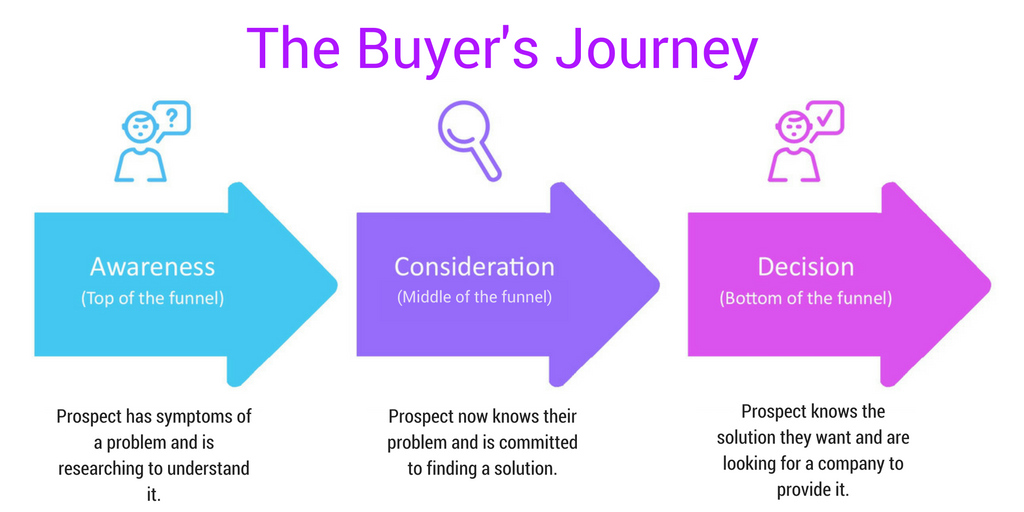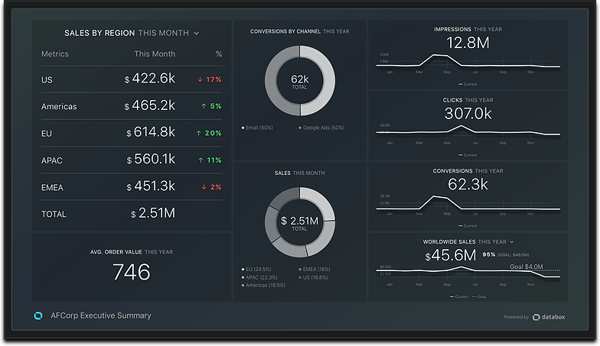There's so much involved in being an Inbound Marketing Specialist that it's often difficult to keep up with exactly what gets done on a day-to-day basis. One second you could be monitoring social media accounts and the next, you could be building workflow emails or revamping Landing Pages. As busy as their days, weeks and months are, we finally have an answer to the question: What does an Inbound Marketing Specialist do?

"First, I Drink Coffee... and Lots of it"
I'm sure some of you can relate to Andrew, our very own Senior Inbound Manager, here. Every morning, without fail, Andrew's morning begins with standing alongside the trusty coffee machine so he can get his well-needed fix of caffeine ahead of what's going to be a very busy day.
Here's what an inbound marketing specialist does:
- Manage Various Campaigns at Once
- Build the Personas
- Conduct Keyword Research and Campaign Planning
- Revisit and Analyse ALL Content
- Check in With PPC and Do Some A/B Testing
- Plan, Write and Build Nurturing Workflows
An Inbound Specialist Needs Lots of Skills - A Brief Overview of Why
It's important to understand that there's not just one type of Inbound Marketing Specialist as proper inbound marketing needs expertise in content, SEO, PPC, social media, copy writing, design, reporting and everything in between.
The person responsible for inbound marketing campaigns will manage all of those specialisms. But that's at an inbound agency. It's very different when working as an in-house team. You may need all those specialisms in your own skillset or you might split them out between two of you.
Inbound Marketing Specialists need to be experts in as many areas of digital marketing as possible and have secondary skills in all others. This is because inbound expertise comes in at the persona research stage (the foundation of everything), but the inbound approach needs applying to content, SEO, PPC, email nurturing and social media.
Executing all of these techniques under the inbound approach is what make a great Inbound Marketing Specialist.
Manage Various Campaigns at Once
An Inbound Marketing Specialist is responsible for the whole inbound marketing strategy. This includes managing 90-day campaigns which feature weekly deliverables that need to be met, ongoing SEO, strategy and inter-team comms.
For example, at an agency, this might be day one for a new client which means the Inbound Marketing Specialist needs to have a kick-off meeting with them once they have signed. Here, the aim is to get to know them, their goals, what they're trying to achieve, their USPs, who they sell to and importantly, who their best customers are so the specialist can find and help more of them.
But for in-house marketers, this means liaising with the sales and marketing directors to ensure all marketing efforts are aligned with the company's goals and what the rest of the marketing team is working on. If you are the marketing team, you'll need to fit in your inbound strategy planning alongside monitoring your PPC campaigns, liaising with print suppliers and chasing up press release submissions.
Build the Personas
Building thorough personas is what sets apart Inbound Marketing Specialists from traditional marketers as they need to make immersive personas of key customers, meaning they need to have lots of knowledge.
Inbound personas are highly specialised documents which help marketers produce content which helps solve pain points and gain a reader's trust. They need to be more complex than just informing marketers of demographic details, how they like to be spoken to and where these people hang out online.
Lots of prior knowledge needs to be utilised but what also needs to happen is close database analysis, customer and persona interviews, sales team interrogations, and traditional market research.
Conduct Keyword Research and Campaign Planning
Once the interviews have been completed and the personas have been put together, the next stop will be to do some keyword research. Here, the aim is to find out what is being searched and which terms are achievable ranking opportunities.
This helps with campaign planning as you're able to build content around those keywords with the likelihood of ranking higher on Google being a possibility because the specialist will already know what the customers are searching for.
Each keyword needs to be assessed on three levels: Would my persona search this? Are enough people searching it a month for it to be worth my while producing content for it? Is the SERP competition beatable?
Each inbound marketing keyword needs to be assessed on three levels:
- Would my persona search this?
- Are enough people searching it a month for it to be worth my while producing content for it?
- Is the SERP competition beatable?
The next task during this part of the day is finding suitable blog titles and adding in the briefs for them, This is important, as the blog titles and the brief need to be clear so whoever is writing them knows how to solve pain points and what to do to move the reader through the Buyer's Journey.
For example, an early Awareness Stage blog title shouldn't aim to sell a product. The blog will be more effective if it just aims to pique the reader's interest enough to download a Consideration Stage download piece (or even read a late-Awareness Stage blog).

The aim is to come up with one or two blog titles a week depending on budget (the more content the better). All of this is put into a Campaign Plan then at the same time, the specialist puts together some form of premium downloadable content to get a visitor's email address. This can range from Pillar Pages right through to whitepapers and eBooks.
Once the keywords are picked and the topic of download has been pitched and signed off, the writers can work their magic. If you're in-house, then you may be responsible for all of these steps. Although, you do have the option to outsource to a freelance writer, but that brings its own challenges.
Personally, we prefer to keep it all in-house.
Revisit and Analyse ALL Content
Once that's been handed over to the content team/it's time to look at something else, the inbound specialist can then revisit some Landing Pages. It's a chance to analyse CTR performance to see where users are clicking, where they're scrolling, analyse their screen recordings and even check out some Hotjar analysis.
It's a chance to analyse older content to revisit what's been working well and what's not.
After analysing and collating the results, they can see what has worked well and either improve on it to make it work even better, or they can look at what's failed, rip it all up and start over.
So, they'd look at both ends of the spectrum: Fix what's broken and double down on what's working really well. For example, this can include analysing what's converting well, such as Landing Pages and blogs. If they're converting really well (over 30 percent, say), the specialist might even decide to pay to share it to get even more eyes on it to improve the conversion numbers further. (Yes, inbound marketing can use PPC!)
And at the other end of the scale, a blog might already have lots of views but might be failing to convert. The Inbound Marketing Specialist might then decide to plan out and create a brand new download specifically for that high-traffic blog in order to gain more conversions and get more leads.
Check in With PPC and Do Some A/B Testing
Afte that, the chair is rolled over to the PPC specialist to check-in with how things are going. This includes analysing how the campaigns are doing, finding out if there is anything that's working well in the three current campaigns, for example, and turning off the ones that aren't working.
Again, a specialist will always double down on things that are working and not ignore them because they've worked well. Test, test and test some more.
A/B Testing then takes place where the specialist can make some small tweaks to see the difference they can make, rather than making several changes at once.
And this can be applied across inbound content too. For example, on a Landing Page, the Inbound Marketing Specialist might have noticed that submissions on the form increased by 10% since the CTA colour was changed from red to green. So this would be rolled out across the board.
To take this further, the next change could be to adjust the button's wording instead to see the difference this can make. The specialist will already know not to change everything, as it would be difficult to know which changes worked.
What helps to make A/B testing more efficient is HubSpot's A/B testing feature. In case your change has an adverse effect, only 50% of viewers will see it so you'll get all the learning with half of the consequences. Read more about HubSpot and A/B Testing here.
Plan, Write and Build Nurturing Workflows
Once the first draft of the content download has been handed back to the specialist from the content team, the next stop is to begin planning the workflows. For the Awareness emails, for example, the specialist will begin by drafting up some emails which are specific to the download while the aim will always be to move the reader to the Consideration stage.
Then the Consideration stage workflow emails are created with the same aim in mind: to move the reader to the Decision stage workflow, which also needs to be created.
Once all of the above has been done, the specialist will then present all of that to the boss or Director. Here, they'd show how much content has been produced, how many visits there were, how many of the visitors gave their details and how many leads have been qualified enough to hand over to the sales team.
How The Typical Day Can Vary
Obviously, this typical day depends on which stage of the campaign a client is at. If the Inbound Marketing Specialist like Andrew is working with a new client, then the early stages of the month will involve planning their campaigns and doing the persona research.
During the middle of the month, the days will mainly revolve around analysing previous content and finding ways to improve on that.
At the end of the month, they will then collate all of the stats and analyse some important metrics. These can include page views along with current progress in comparison to previous years. Then, the entire process is repeated for the following months.
 Example of databox Analysis. Image Credit: Analysis Factory
Example of databox Analysis. Image Credit: Analysis Factory
It's not as straightforward as that though when it comes to what a day consists of for an Inbound Marketing Specialist. There are always going to be random, last-minute yet important tasks landing on their desk. This can include errors in a previous blog, or the sales team want to send out a new offer which needs to go out by close of play. Then the race against time is on to get it out on time.
They'd need to choose their list, segment it, work on a subject line and then chase up the design team for product shots. They'd need confirmation on the offers, when the shipping deadlines are, have it proofread and then send - all before it's time to go home. Or, if they give you enough prior notice, it can be automated well in advance using a tool like HubSpot.
So this is how it all works in theory and what a day consists of. Although, it's not always as smooth in real-life when you're in-house and have many hats to wear at once. Well, that's unless you use a HubSpot agency who have just gone Diamond to take care of your inbound needs.
How To Get More Out of Your Inbound Marketing Strategy
Now that you know what an Inbound Marketing Specialist generally does on a daily basis, it's important to know that there's still so much more that goes into creating an inbound marketing strategy that thrives and succeeds. To start, you need the right CMS. Without this, you can't suitable create, present and analyse your content.
Download a FREE copy of our CMS Comparison Checklist to help you choose the right platform for you and your business.



